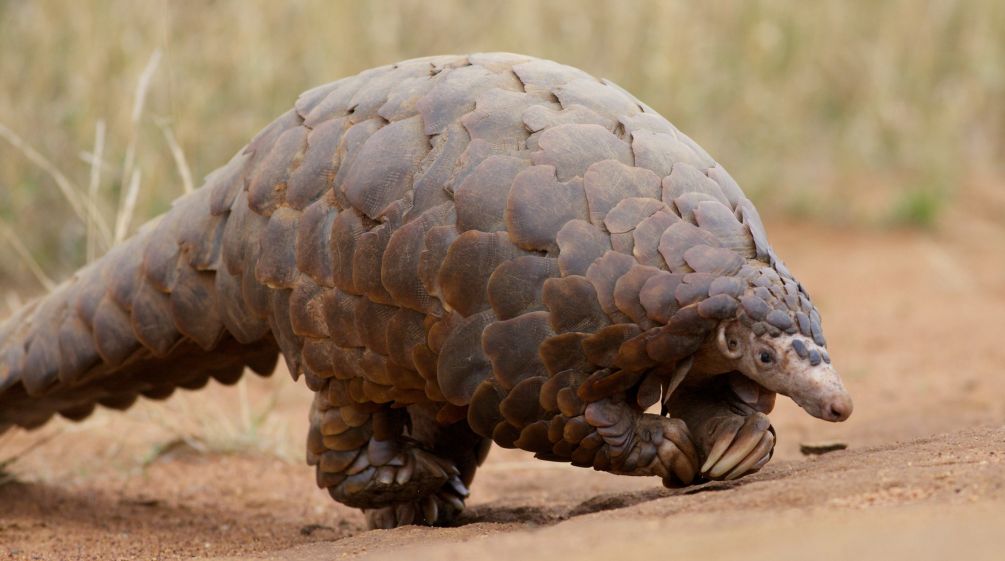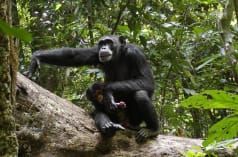Petition with more than 265,000 signatures calling for pangolin conservation to be delivered to CITES CoP17 in South Africa
 Pangolins are the “forgotten” endangered species. (© Scaly Anteater/Flickr - CC BY-SA 2.0)
Pangolins are the “forgotten” endangered species. (© Scaly Anteater/Flickr - CC BY-SA 2.0)
Hamburg, Germany – Pangolins have become so rare in the wild that for villagers in remote corners of Asia, catching one is not unlike finding a winning lottery ticket. All four Asian pangolin species are listed as “endangered” or “critically endangered” on the IUCN Red List of Threatened Species. The four African species are also increasingly vulnerable. Rainforest Rescue has collected more than 265,000 signatures calling for strict pangolin protection and will deliver the petition to the CITES conference in South Africa.
“It’s appalling: no other mammal is poached on this scale, yet hardly anyone is aware of it. We need tough measures against pangolin trafficking now – otherwise they are doomed,” said Rainforest Rescue's Reinhard Behrend.
Rainforest Rescue has collected more than 265,000 signatures calling for strict pangolin protection. The petition titled “Take pangolins off the menu now!” is thus one of the most widely supported in the organization’s thirty-year history.
“With Asian pangolin species on the brink of extinction, poachers are now hunting African pangolins to supply the Southeast Asian restaurant trade and purveyors of traditional ‘medicine’. The only thing that can help these creatures is a strictly monitored, absolute ban their trade,” added Adeline Fischer of the German NGO Pro Wildlife e.V.
Pro Wildlife animal rights activists will be delivering the petition during the CITES conference in Johannesburg, South Africa, in late September. Representatives of 182 signatory states will be attending the meeting, which will start on September 24th, to discuss wildlife trade bans.
Pangolins are the “forgotten” endangered species
“Unfortunately, CITES is no guarantee of effective protection for endangered species,” observes Rainforest Rescue chairman Reinhard Behrend. “We have three petitions relevant to CITES covering pangolins, elephants and rhinos, but that’s just a start – CITES does not afford adequate protection to other species such as the peregrine falcon, African gray parrot or silky shark. Business interests often prevail over conservation measures.”
Poachers and traffickers are responsible for the decimation of pangolin populations. The main target markets are China and Vietnam – countries in which the pangolin’s keratin scales are believed to have beneficial properties in traditional medicine. Furthermore, pangolin meat is considered a delicacy and is often among the most costly dishes on restaurant menus.
According to some estimates, poachers have killed one million pangolins over the last ten years. Between 2011 and 2013 alone, 23,400 illegally traded animals were confiscated.
Petition against ivory trade
On the topic of ivory trade, Rainforest Rescue will also be delivering its petition “Tell the EU to stop aiding ivory traffickers!”, which was signed by 150,398 supporters, together with several other petitions on the same topic by other international organizations.
Petition against trade in rhino horn
The impact of online protests can be seen in the fact that South Africa has abandoned its proposal to legalize trade in rhino horn. After an international outcry – including Rainforest Rescue’s petition “Take a stand for South Africa’s rhinos!”, which was signed by 122,424 supporters – the South African government withdrew the plan that would have kicked rhino poaching into overdrive.
The text of the pangolin conservation petition
“As endangered wildlife, pangolins have not received the attention they deserve, even though all eight species are on the Red List. The situation is most urgent for the critically endangered Chinese and Sunda pangolins, which could become extinct within the next fifteen years.
Hunting, driven by illegal trade, is primarily responsible for the collapse of pangolin populations. The keratin scales are believed to have beneficial properties in traditional Chinese medicine. Pangolin meat is considered a delicacy and is often among the most costly dishes on restaurant menus.
I call on you to take effective action to fight the hunting and illegal trade of these endangered species.”
https://www.rainforest-rescue.org/petitions/963/take-pangolins-off-the-menu-now
For further information, please contact
Rainforest Rescue (Rettet den Regenwald e.V.), Reinhard Behrend – tel: +49-40-410380-4
info@regenwald.org
Pro Wildlife / Adeline Fischer – mobile: +27-64743-9402 (in South Africa)
adeline.fischer@prowildlife.de
Background
The Convention on International Trade in Endangered Species of Wild Fauna and Flora (CITES, also known as the Washington Convention) was opened for signatures in 1973 and entered into force in 1975. For more information on CITES and its 17th Conference of the Parties (CoP17), please visit https://cites.org
The IUCN Red List of Threatened Species is maintained by the International Union for Conservation of Nature.
Information on the eight pangolin species and their threat levels can be found here: http://www.iucnredlist.org/search
For more information on the global conservation priorities of the IUCN, please visit http://www.iucnredlist.org/news/first-global-conservation-priorities-set-iucn-world-conservation-congress










